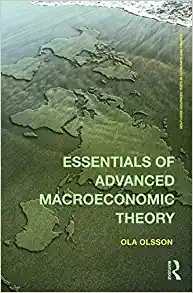Question
II. giving examples of MNC'S (multi-national corporation ) from countries ; japan, china , south Korea, USA, Germany & UK and justifying how they dominate
II. giving examples of MNC'S (multi-national corporation ) from countries ; japan, china , south Korea, USA, Germany & UK and justifying how they dominate the market & contribute to their countries.
III. briefly. own words
1. defining market globalism & global corporation
2. what are the crucial role of integrating market and new information technologies in understanding globalization?
3. determining evidence that market globalism is sufficiently systematic to add up to a comprehensive political ideology
---------------------------------
MODULE
guide:
David's claim is so optimistic that in one way or another, stresses that globalization is beneficial to the world's citizens. It seems to imply that with globalization at hand, the lives for most people would become better for days or years to come. With this, David views globalization as a good thing for the citizens of the contemporary world. Hence, for people in line with George David's line of thinking, globalization brings a lot of positive things. In relation to this, Manfred Steger has stressed that globalization could be summarized into five core claims: 1. Globalization is about the liberalization and global integration of markets; 2. Globalization is inevitable and irreversible; 3. Nobody is in charge of globalization; 4. Globalization benefits everyone in the long run; and 5. Globalization further the spread of democracy in the world (Steger, 2009).
FROM MARKET GLOBALISM TO IMPERIAL GLOBALISM AND BACK
The five core claims of market globalism show that market globalism is sufficiently systematic to add up to a comprehensive ideology. In the 1990s, the social power elites of industrialized countries used the soft language "market globalization" to define their imperial activities. After the September 11th attacks, the power elites saw a legitimate challenge to globalization ---- terrorism. As many market globalists struggled to maintain the viability of their ideological project focused on open markets, the unilateralist the Bush administration supported the compromise of toughening up the ideological claims of market globalism to fit the neo-conservative vision of a compassionate US empire relying on overwhelming military power (Steger, Battersby, & Siracusa, 2014 ).
As a result, market globalism morphed into imperial globalism. Claims One (globalization is about the liberalization and global integration of markets) and Four (globalization benefits everyone) - the backbone of market globalism - remained largely intact but the other claims had to undergo hard-power facelifts. The determinist language of Claims Two, however, came under sustained criticism by commentators who read the al-Qaeda attacks as exposing the dark side of globalization. Some proclaimed the imminent 'collapse of globalism', worrying that the terrorist attacks would usher in a new age of cultural particularism and economic protectionism (Steger, Battersby, & Siracusa, 2014). This paves the way for claim 6 of globalization: you need a war on terror to market globalization's discursive arsenal. Lastly, it is also worth noting that one observation by many scholars of globalization is that globalization is Americanization or McDonaldization of the world.
GLOBALIZATION
The approach to study of globalization, sometimes termed "historical globalization" , locates the phenomenon itself in early patterns of trade and exchange (Moore & Lewis, 2000). In early historical periods as both cities and countries expanded their reach beyond their own borders, this view holds that a form of globalization was initiated, which then followed complex patterns of interactive engagements organized through trade and directly influenced by the emergent and subsequently dominant technologies.
The contemporary global corporation is simultaneously and commonly referred to either as a multinational corporation (MNC), a transnational corporation (TNC), an international company, or a global company. Those offered by Iwan (2012) are practically useful (Steger, Battersby, & Siracusa, 2014).
- International companies are importers and exporters, typically without investment outside their home country;
- Multinational companies have investment in other countries, but do not have coordinated product offerings in each country. They are more focused on adapting their products and services to each individual and local market.
- Global companies have invested in and are present in many countries. They typically market their products and services to each individual local market.
Transnational companies are more complex organizations, which have invested in foreign operations, have central corporate facilities but give decision-making, research and development (R&D) and marketing powers to each individual foreign market (Steger, Battersby, & Siracusa, 2014). Global corporations within the emerging economies appear to be of three general types: those that have arisen as a result of growing national power of the host country, responding to the need to aggregate and deploy national capital to provide the basis for economic development; a second type of global firm has focused on replicating major consumer pathways in both developed and developing market a third type in which working through contract and other relationships with developed market firms has been the basis for their rapid increase in size and influence which in turn has empowered the firms to establish other complex linkages beyond core contract markets to build competitive advantage in both global and domestic markets usually by gaining access to andexploitation of superior innovative technology.
Step by Step Solution
There are 3 Steps involved in it
Step: 1

Get Instant Access to Expert-Tailored Solutions
See step-by-step solutions with expert insights and AI powered tools for academic success
Step: 2

Step: 3

Ace Your Homework with AI
Get the answers you need in no time with our AI-driven, step-by-step assistance
Get Started


